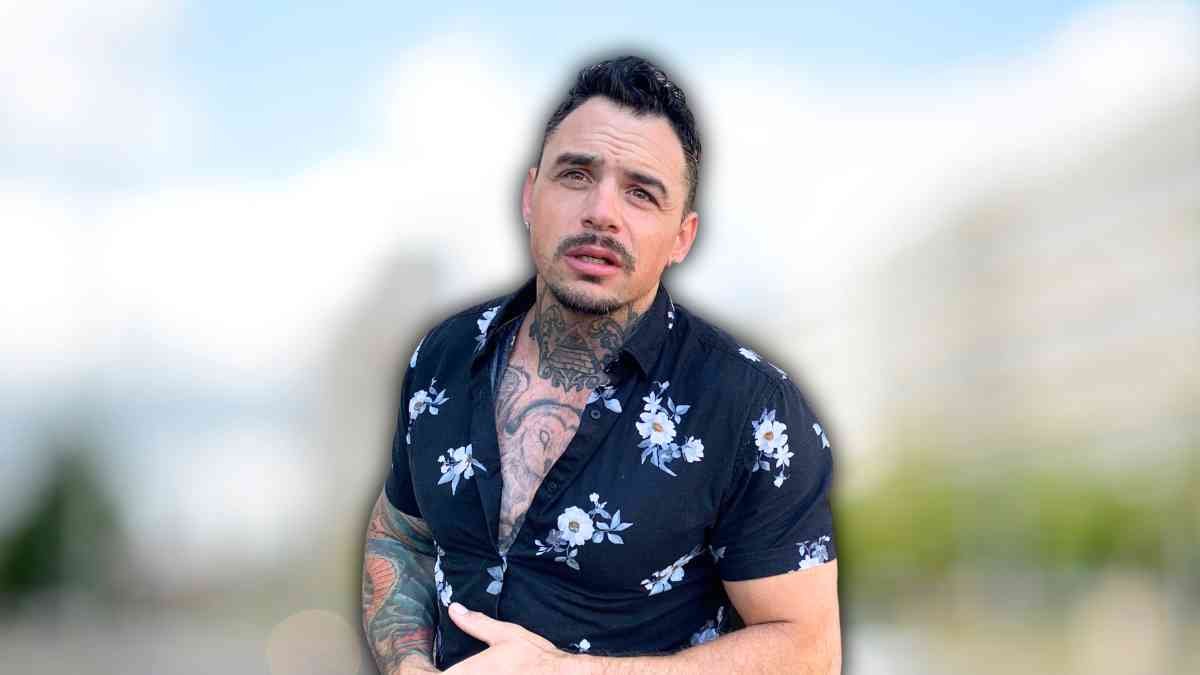Ricci Wynne: From Online Vigilante to Federal Indictment
The Rise and Fall of a Social Media Crusader Turned Criminal Defendant

Ricci Wynne, once hailed by his followers as a bold voice exposing San Francisco’s underbelly, is now at the center of a shocking legal storm. Known for his controversial street-level videos capturing drug abuse, homelessness, and urban decay, Wynne cultivated a massive online presence as a self-styled vigilante. But behind the viral posts and tough-guy persona, prosecutors allege a disturbing reality: a man accused of sex trafficking, coercion, and crimes against minors.
Quick Bio of Ricci Wynne
| Full Name | Ricci Wynne |
|---|---|
| Age | 39 years old |
| Gender | Male |
| Height | Approximately 5 ft 10 in |
| Nationality | American |
| Place of Birth | San Francisco, California |
| Known For | Social media influencer, activist |
| Online Alias | @RawRicci415 |
| Criminal Charges | Pimping, pandering, child exploitation |
| Current Status | Held without bail |
| Net Worth (Est.) | ~$100,000 (pre-indictment) |
| Past Convictions | Firearms, drug offenses, assault |
| Platform Popularity | Twitter, YouTube |
Who Is Ricci Wynne?
Ricci Wynne, 39, emerged from the gritty streets of San Francisco. With a background rooted in past criminal offenses, including firearm and drug-related charges, he pivoted to social media as a platform to expose what he described as the city’s moral and political decay. His videos—often graphic and controversial—showed scenes of open-air drug use, street violence, and people experiencing homelessness.
Operating under the handle @RawRicci415, Wynne quickly gained followers across platforms like X (formerly Twitter) and YouTube. His videos were frequently shared by right-wing commentators and conservative media outlets, earning him both praise and criticism.
Online Fame and Controversy
Wynne’s rise wasn’t without controversy. While some citizens viewed him as a necessary truth-teller in a city struggling with drug addiction and homelessness, others accused him of exploiting vulnerable populations for views. Critics questioned the ethics of filming people in crisis and publishing the footage without consent. Nonetheless, Wynne’s social following surged, making him a polarizing figure in San Francisco.
His persona combined bravado, community outrage, and a streetwise tone that resonated with disillusioned residents. Yet few could have predicted the dramatic shift that would take place in late 2024.
The November 2024 Arrest
In November 2024, Ricci Wynne was arrested at San Francisco International Airport. Authorities accused him of pimping and pandering—specifically, of operating a sex trafficking ring involving an adult woman. A search of his residence yielded nearly $80,000 in cash and multiple mobile phones containing evidence of sex work arrangements.
The case shocked supporters and provided ammunition to longtime detractors. It also raised questions about whether Wynne’s online crusade was a smokescreen for criminal activity or simply part of a double life.
Federal Indictment: Child Sexual Abuse Allegations
In March 2025, the situation escalated dramatically. A federal grand jury indicted Wynne on two counts of producing child sexual abuse material. The indictment alleges that Wynne coerced two minors into performing sexually explicit acts for the creation of videos and images in 2022.
Prosecutors further claimed that Wynne resumed predatory behavior shortly after a prior release from federal custody in 2021. One alleged victim was reportedly as young as 13 years old.
These federal charges are severe. If convicted, Wynne faces a mandatory minimum sentence of 15 years and up to 30 years per count, along with fines reaching $250,000 each. He is currently being held without bail at Santa Rita Jail.
The Backlash and Community Response
The charges sparked an immediate backlash. Followers who once saw Wynne as a bold truth-seeker turned away, some deleting past endorsements. Local activists condemned the exploitative nature of his content, suggesting the warning signs were always present.
San Francisco law enforcement, particularly the Special Victims Unit, intensified their investigation, urging more victims to come forward. Authorities believe there could be additional individuals who suffered at Wynne’s hands but have yet to speak out.
A Pattern of Criminal Behavior
Ricci Wynne’s criminal record is long and well-documented. Prior to his social media stardom, he had served time for offenses including:
- Firearm possession
- Drug distribution
- Assault and battery
These past convictions played a significant role in both federal and state prosecutorial strategies. The repeated nature of the offenses suggested a pattern of behavior rather than isolated incidents.
More Read: Christina Ricci Net Worth: Inside the Financial Journey of a Hollywood Icon
Media Influence and Manipulation
One of the more sobering takeaways from this case is the influence and reach that Wynne managed to gain using social media. His ability to portray himself as a watchdog while allegedly committing serious crimes behind the scenes illustrates how platforms can be manipulated.
He wasn’t just sharing videos—he was shaping narratives, often with political overtones. His content was regularly re-shared by far-right figures and news platforms, bolstering his credibility among a segment of the public.
Legal Ramifications and What’s Next
As the case proceeds, the legal system is expected to bring forth extensive digital and forensic evidence, including footage, texts, and financial transactions. Multiple federal and local agencies are collaborating on the investigation.
If more victims come forward, Wynne could face additional charges, potentially leading to a life sentence. Meanwhile, his social media accounts remain deactivated or banned, and public interest in the case continues to rise.
The Role of Public Accountability
This case highlights the urgent need for public accountability in the age of digital media. Influencers and independent journalists wield substantial power, and with that should come scrutiny. Wynne’s case serves as a reminder that online personas are not always what they seem—and that vigilantism should never replace lawful due process.
Communities must think critically about who they elevate and why. The fact that Wynne gained influence despite his criminal history suggests systemic gaps in how public discourse is shaped online.
Conclusion
Ricci Wynne’s story is a cautionary tale of dual identities—one public, one allegedly criminal. It’s a reminder that influence can be wielded by those with dangerous intentions and that the truth often reveals itself in unexpected ways.
From viral clips to federal indictments, Wynne’s trajectory shows how fame built on controversy can come crashing down when law enforcement catches up with real-world actions. The ongoing case is more than a scandal; it’s a societal mirror reflecting the risks of unchecked online celebrity.
As the trial unfolds, the public will be watching closely. The outcome may set a precedent for how social media influencers are held accountable—not just in the court of public opinion, but in the court of law.
Stay informed, stay critical, and support the voices of victims.



